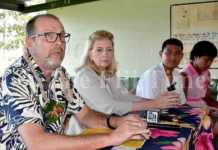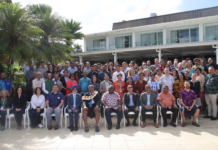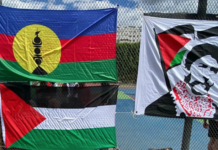
By RNZ Pacific
New Caledonia’s pro-independence Kanak and Socialist National Liberation Front (FLNKS) movement has confirmed that it will request a third and final referendum on independence from France.
Last Sunday, 53 percent voted against independence in the second of three possible referendums – three percent less than in 2018.
The FLNKS spokesman, Victor Tutugoro, said his side now had the “wind in its sails”, describing last Sunday’s result as a victory which indicated the direction that the country must take.
- READ MORE: Victory in defeat for Kanak independence movement in latest referendum
- Melanesian Spearhead Group still backs Kanak decolonisation agenda
Under the terms of the Noumea Accord, a third of the members of New Caledonia’s 54-seat Congress is needed to request the next referendum six months after the last plebiscite.
Tutugoro said the FLNKS believed it had convinced people beyond its traditional electorate, with non-Kanak voices now supporting its cause.
However, New Caledonia’s anti-independence parties as well as French politicians are keen to avoid a third referendum and instead seek a dialogue for a new arrangement.
But the FLNKS has warned it will only engage in discussions on the basis of its political project of achieving full sovereignty and independence.
French citizens seek electoral rolls boost
An organisation of French citizens without full voting rights in New Caledonia has called for a rally to coincide with a visit to Noumea by French Overseas Minister Sebastien Lecornu.
The group, One Heart One Vote, wants an estimated 41,000 residents to be registered on all electoral rolls.
They can only vote in municipal elections and French elections, but not in provincial elections and independence referendums which are restricted to indigenous Kanaks and those who arrived and registered in New Caledonia before 1998.
One Heart One Vote called for a rally outside the French High Commission on Saturday next week and requested to be received by Lecornu.
The restrictions were enshrined in a French organic law in 1999 to shore up the representation of the indigenous Kanak population.
This article is republished by the Pacific Media Centre under a partnership agreement with RNZ.













































